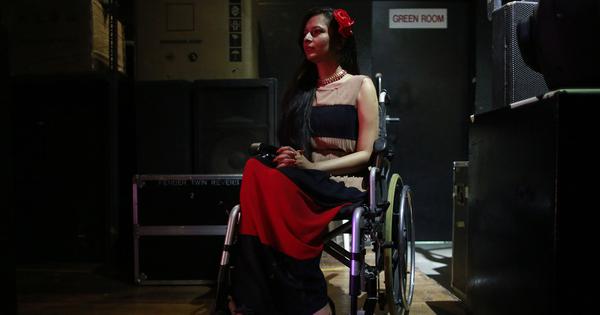
For most people, walking, seeing, and hearing are natural, untaxed parts of everyday life. You do not get taxed for turning the page of a book, crossing the street or listening to a conversation.
Yet in India, persons with disabilities are effectively taxed for those very same rights to mobility, communication, and independence. The Goods and Services Tax rate of 5% on disability aids and rehabilitation services is not merely an economic burden – it is a structural injustice that has persisted far too long in our tax system.
To put it plainly: this is the equivalent of taxing someone for walking, seeing or hearing. Assistive devices – wheelchairs, crutches, hearing aids, Braille paper, screen readers – are not luxuries. They are fundamental enablers of daily life, education and employment. Taxing them undermines the very idea of equality.
Households with a member with disability already face much higher living costs than others. Global research shows they require at least 17% more income to maintain the same standard of living. When the additional costs of disability are properly accounted for, poverty rates nearly double.
In India, this strain is compounded by the absence of accessible infrastructure and the prohibitive cost of assistive devices and rehabilitation services. For many families, the GST burden is simply indefensible.
The GST Council has argued that the concessional 5% rate benefits manufacturers through Input Tax Credit. But this benefit never reaches the end user. With raw materials taxed at 18%, costs are passed on to consumers, leaving people with disabilities to pay more for basic accessibility.
The result is stark: those who already face barriers to employment and income are further penalised for seeking independence.
Necessities, not optional goods
This inequity has been flagged before. A recent report by the Parliamentary Standing Committee on the Ministry of Social Justice and Empowerment, chaired by MP Rama Devi, stated unambiguously: disability aids are necessities, not optional goods. They enable independence, literacy, and employment with dignity.
The fiscal case is clear. The size of the assistive devices market is tiny compared to overall GST collections. Exemption these devices from tax will not destabilise revenue but the social return will be profound: easing household burdens, expanding access to assistive technologies and affirming that persons with disabilities are not second-class citizens.
The constitutional case is even stronger. By continuing to tax disability aids, the government undermines guarantees under Articles 14, 15, 19, and 21, which enshrine equality, non-discrimination and dignity.
The Supreme Court has repeatedly affirmed that taxation cannot infringe fundamental rights. Taxing the very tools of survival and mobility runs afoul of this principle.
There is also a gendered dimension. Disability prevalence is higher among women (19%) than men (12%), and in low- and middle-income countries women comprise nearly three-quarters of persons with disabilities. Women with disabilities are already among the most excluded, facing barriers in education, healthcare, and work.
Continuing to tax disability aids pushes them further to the margins, stripping away even the chance of a dignified life.
Internationally, the direction of reform is obvious. Countries like Australia and Canada exempt disability aids entirely, recognising that taxing disability is both unjust and inefficient. India should not lag behind.
As one of us writes this from lived experience as a wheelchair user, this issue is not abstract. A wheelchair is not an add-on to life, it is life. Paying a tax on it feels like being penalised for existing. For every person with a disability who uses a hearing aid, a prosthetic or a Braille kit, the story is the same: these devices are the bridge to equality, and taxing them only widens the gap.
Zero rating
What we’re asking for is simple and it is urgent: disability aids and rehabilitation services must be zero-rated under GST. Zero rating ensures that the entire value chain is not taxed – this can be implemented through proper classification of GST aids under separate HSN or Harmonised System of Nomenclature codes that categorise goods based on their characteristics and facilitate uniform taxation categories.
The government should act on the Standing Committee’s recommendation and make this change in the next GST Council meeting. This is a fiscally modest reform with outsized social impact.
In the larger conversation about equity, inclusion and growth, tax reform may seem technical. But here, the issue is moral clarity. No society that aspires to dignity for all its citizens can justify a system where people without disabilities move freely, while people with disabilities pay extra to do the same.
Exempting disability aids from GST is not charity. It is recognition of rights. It is acknowledgement that independence and mobility are not privileges to be taxed, but freedoms to be enabled.
Nipun Malhotra is Founder, Nipman Foundation & Director, The Quantum Hub. Harshita Kumari is Analyst, The Quantum Hub. Nipun lives with a visible disability while Harshita lives with an invisible one.
This article first appeared on Scroll.in
📰 Crime Today News is proudly sponsored by DRYFRUIT & CO – A Brand by eFabby Global LLC
Design & Developed by Yes Mom Hosting






